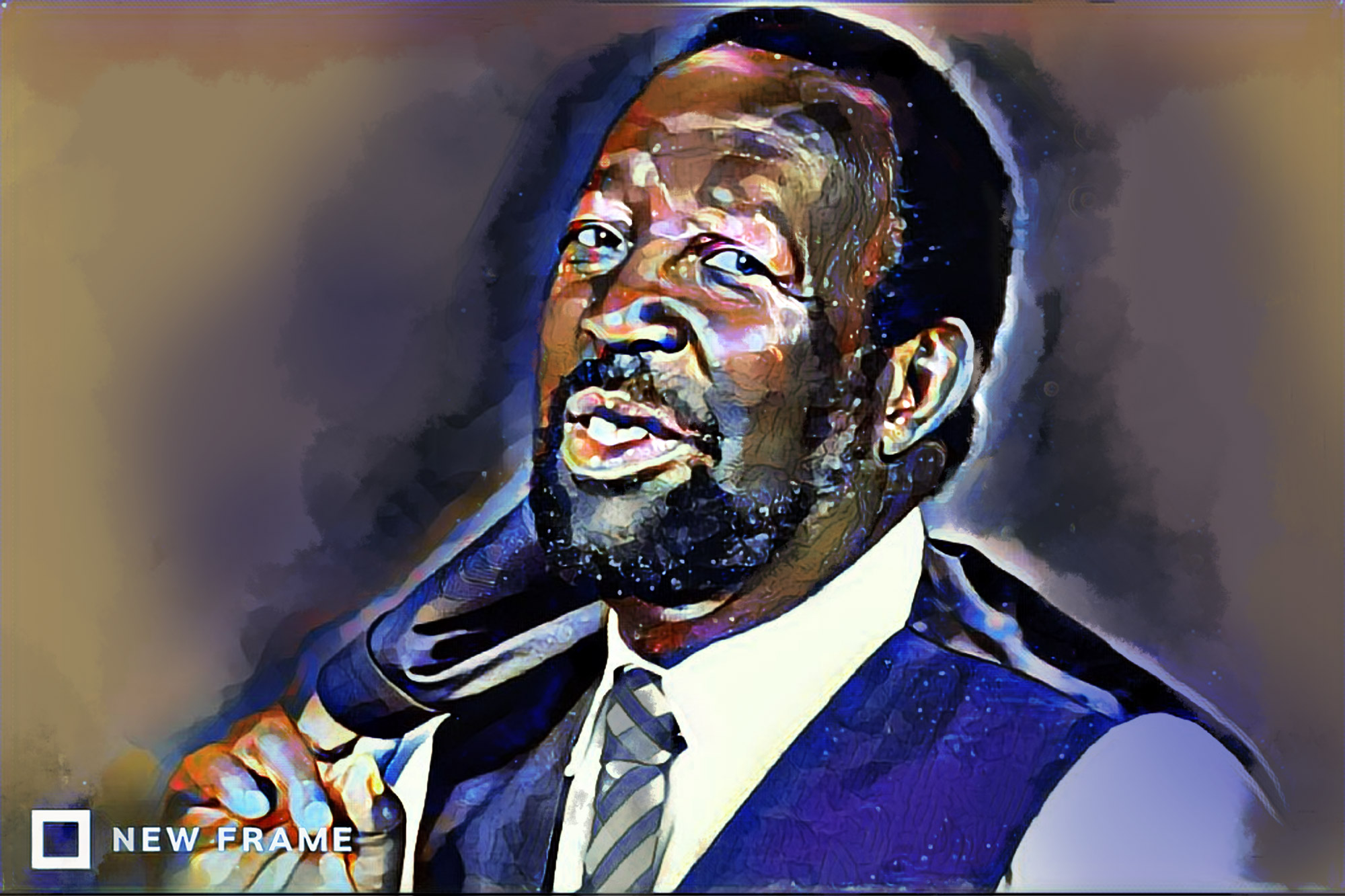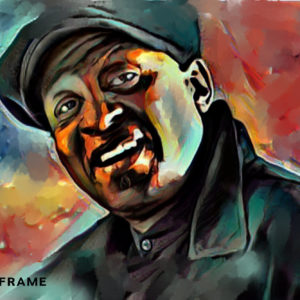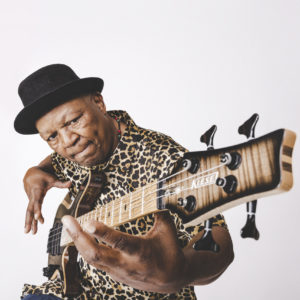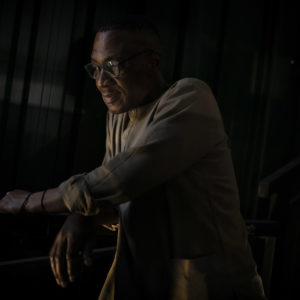Zexie Manatsa, bringer of good music and good news
The Zimbabwean musician, who died recently, forged a very specific musical tradition while championing multilingualism and cultural egalitarianism.
Author:
7 February 2022

Popular musical traditions in Southern Rhodesia (now Zimbabwe) were shaped by winds blowing principally from four directions. It is winds that came from the West, from the Congo, from South Africa, the country’s powerful neighbour, and from within the country itself. As a British settler colony, the West was for long the chief lodestone, with successful local acts shaping themselves in the image of whatever popular group was fashionable overseas.
As nationalism rose during the 1960s, fascination with western music began to erode. Rhumba music, from radio and travelling Congolese acts, was on the rise – alongside mbhaqanga groups from South Africa that were also popular. And as the liberation war gathered momentum in the 1970s, ears turned towards the country’s own indigenous traditions: mbira, jit and other drum-based styles.
If you had asked legendary Zimbabwean musician Zexie Manatsa – who died aged 76 on 20 January from cancer complications – to state which tradition he belonged to, he would describe his own musical compass as drawn towards South Africa. He told American ethnomusicologist Thomas Turino that mbhaqanga had always been his favourite but that he had to bend to fans’ tastes.
Related article:
“Around me, we are Zimbabweans. If we just play mbhaqanga without putting that style … a little mbira in it, you see, the rhumba, a little … you’ve got to mix those things or they wouldn’t be happy. I’ve got to compose a record which, if we have got 12 million in Zimbabwe, it should be [popular with] about eight million or 10 million…”
In the late 1960s, he was already playing music inspired by South African popular sounds. As part of the Sakaza Sisters, a South African smanjemanje act, Manatsa and his band toured Rhodesia, years before his collaboration with South African producer and saxophonist West Nkosi in the mid-1970s.
Of music and movement
Manatsa was born in Doma, Sipolilo (now Guruve), on 1 January 1944. Although Guruve is on the western edges of the heart of Shona country, the Chewa language, carried on the lips of Malawian migrants from the then Nyasaland, is widely used on the copper mines and commercial farms carved out by British settlers. So, early on, finding a willing tutor at his school, Manatsa learnt Chewa (sometimes called Nyanja) – a prescient decision, as he later sometimes sang in the language.
He was drawn to music from his childhood, exploring banjo, pennywhistle and guitar. With his brother Stanley, he formed a band called Spring Mambo, a fixture in the copper-mining town of Mhangula (Mhangura) and surrounding farms.
Two accounts exist of Manatsa’s decision to move to Zimbabwe’s second city, Bulawayo. One says that while applying for identity documents in Sinoia (now Chinhoyi) the bureaucrat told him he must get the papers from the capital Salisbury (now Harare). There, walking near Railway Avenue, he saw a Bulawayo-bound train and instantly decided to head there. “I recalled that my uncle and a stepbrother were working in Bulawayo. When I [learned the fare] was cheaper to Bulawayo than Mhangura, I boarded the train,” he said.
Related article:
Another more dramatic account suggests Bulawayo provided a refuge from an exploitative contract with a local businessman. Musical instruments in those days were prohibitively expensive, so musicians often relied on a nightclub or hotel proprietor who owned and rented out equipment to artists in exchange for their playing at his venue. Often the artists were paid minimally, if at all. Zexie asked his brother Stanley: “How can we stay here without pay?” The entrepreneur had bought them two guitars, a bass and a lead: “I said we must leave this place and take these guitars,” he said.
With two stolen guitars and their heads teeming with dreams of music and freedom, the two fled. They did not head to nearby Salisbury – where, just 100km away, it would have been easy for the businessman to track them down – but to more distant Bulawayo. That choice between Salisbury and Bulawayo – one that a multitude of other Rhodesians in far-flung districts undertook – was later described by Zimbabwean writer Yvonne Vera in her novel Butterfly Burning: “Bulawayo bigger. The Rhodesia railways is housed there. Bulawayo is close to South Africa and that, by itself, is a full story.”
In Bulawayo, after a stint with the Jairos Jiri Sunrise Kwela Kings, the brothers formed Green Arrows in 1968. Manatsa was the band’s bassist and composer, his brother Stanley was on lead guitar and another brother Kadias Manatsa on rhythm guitar, with Raphael Mboweni on drums. The band became a fixture on the Bulawayo nightclub circuit, performing covers of the bands famous then, including Mahotella Queens and Izintombi Zesi Manje Manje. In Bulawayo Manatsa learnt to speak Ndebele – another language he would later employ in lyrics. In Zimbabwean pop culture, Manatsa’s championing of multilingualism and cultural egalitarianism are without equal.
The Harare years
Manatsa moved to Harare in 1974, coinciding with his success and the start of his collaboration with West Nkosi, who was the Green Arrows’ producer until 1980. The band’s single, Chipo Chiroorwa, a Marabi-influenced tune that would become a wedding standard, was so popular that it sold 25 000 copies, reaching gold status, a milestone for a Black musician. Even people born long after its release know and dance to its deceptively simple lyrics: Chipo chiroorwa tipembere/ Vabereki vedu vangazofara/ Tidye makeke titambe muchato (Chipo, marry, so that we celebrate/ Our parents will be happy/ We will eat cake and enjoy the wedding party).
But Manatsa’s oeuvre is not just about wedding parties and cakes. The popularity of Thomas Mapfumo at around the same time might have contributed to the creation of this perception. No doubt because Mapfumo’s sound came to be closely associated with Chimurenga, the Zimbabwean (as opposed to Shona) word for revolutionary struggle. As a result, he is often stereotyped as the only liberation singer. However, Manatsa’s contribution to the genre sometimes known in Zimbabwe as “Songs that won the Liberation War” should not be short-changed.
His 1977 mbhaqanga song Musango Mune Hangaiwa, invoking the spirit medium Nehanda, was effectively a call to arms. When he married Stella Katehwe, his love (according to Turino, the band’s historian), on 25 August 1979, they decided to hold the reception at Rufaro, an austere football stadium in the Salisbury township of Harari (now Mbare). To get into the stadium, Manatsa’s fans had to pay one Rhodesian dollar to watch Mapfumo and the Blacks Unlimited, who opened the set, Oliver Mtukudzi and the Black Spirits and other stars.
Manatsa, not to be upstaged on his special day, also performed. “It was full, as if there was a football match between Highlanders and Dynamos,” he told me. The gate takings for that day totalled Rhodesian $19 000 (about R25 000 at the time).”
Showing the same business savvy he had shown for his wedding by making people pay to witness the wedding party and the performers, Manatsa repeated his football-themed branding again in 1987. He released a body of work called Tsuro Soccer Star, an album whose songs are still chanted at football matches to this day. Explaining the rationale behind the album, Manatsa told me: “I just thought if I sing one song, they will say I am showing favouritism of one team over the others. If I sang only for Dynamos, Caps United fans wouldn’t come to the shows. Kwese ndiripo. I am everywhere.” As a result of the record’s catholic appeal, it was “bought by everyone who supported football”.
Spreading the gospel
Following a series of misfortunes, including a near-fatal road accident in 1995, Manatsa converted to Christianity and joined an evangelical church. The church, to make use of his musical skills, ordained him a music pastor and his old group changed its name to Gospel Arrows. Conservative Christians in and outside the church queried his continued involvement in music, seen by some as the devil’s pastime. “[But] I believe I will be carrying out God’s work because wherever I am, I preach the gospel. I am a pastor, so wherever there are people I can preach,” he said.
He had made a similar point to Turino before he became a Christian: “If you want to be a composer, what you compose or what you do depends, like [the] atmosphere, you see? If it is raining, then you sing about that. Now, that time, there was a war so I was speaking [about] some of what was happening, you see?” Now, in church, he was still singing the gospel (the old English translation for the Greek term for “good news”) but with a message tailored to his new audience.
Related article:
Manatsa was echoing a point the unflinchingly dogmatic and single-minded St Paul made to the church at Philippi in a fleeting moment of broad-mindedness: “Finally, brothers and sisters, whatever is true, whatever is noble, whatever is right, whatever is pure, whatever is lovely, whatever is admirable – if anything is excellent or praiseworthy – think about such things.”
Zexie Manatsa, 1 January 1944 to 20 January 2022, is survived by his widow Stella and six sons: Green, Tendai, Freedom, Aaron, Takunda and Shingirai.



